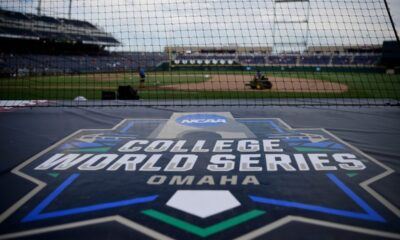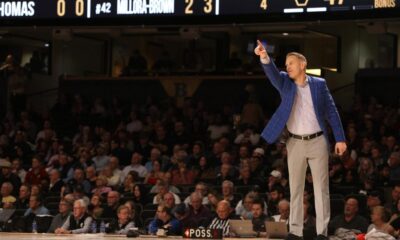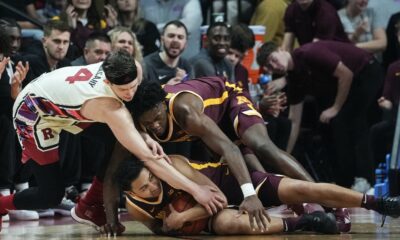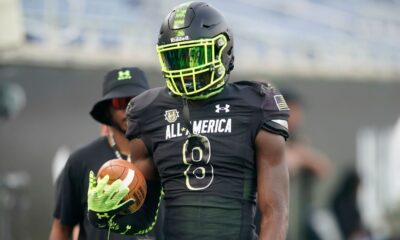
Georgetown won 50-49Alonzo Mourning survived when he got the final 15-foot jump shot taken by Princeton Center’s Kit Muller. There was no contact, and the Hoyas fled.
That Sunday morning, host Dick Sharp turned to me to open the show and said, “Was John Thompson uncoached by Pete Carrill on Friday night?” rice field.
“Yes,” I replied. “But everyone is coached by Pete Carril.”
Four days later, on practice day for the East Region semifinals at the Meadowlands, I ran into Thompson walking out onto the court with the players. When he stopped in front of me, I realized I was in trouble.
“I heard what you said about Pete coaching me on that TV show,” he said. “It’s a damn time you told the truth.” He was laughing now. “You are right. Everyone is coached by that little SOB.”
Princeton and Caryl — died Monday at the age of 92 — although we lost that night, the game is considered one of the most important in the history of the NCAA Tournament. Then, as it is now, the sports heavyweights were discussing getting rid of automatic bidding on one-bid conferences to give more spots to power conference schools.
Princeton’s Very Close Loss later dubbed “The Game That Saved March Madness” by Sports Illustrated. Every amazing little man upset since then— Including last season’s St. Peter’s Run — grew from Caryl coaching Thompson that night in Providence, Rhode Island
It was already well known that Thompson had respect for Caryl. He sent his son John III to play for him. He liked the idea of giving his son a degree from Princeton University. He liked the idea of playing for Yoda in college basketball.
At 5 feet 7 inches and constantly rumpled on and off the court, Caryl actually looked a lot like Yoda. He trained the young Tigers to play as if the Force were with them. future NBA player.
They ran his Princeton offense, but the defense got dizzy as one misstep resulted in a backdoor cut to the basket for an open layup and the shot clock was often under five seconds. rice field. When his shooting three-pointer came up in 1986, Carrill adjusted it to include a flying jumper off the wing, making the offense even more dangerous. Block the backdoor pass and a very good shooter may kill you with a three. Get rid of those threes and you’re back to being repeatedly beaten for layups.
Carril finished with 525 wins and 273 losses in 30 seasons in an era when the team played far fewer games than it does now. He coached him for one season at Lehi and had his only losing record in his career of 11-12. In his next 29 years at Princeton University, he won his 13 Ivy League titles, once finishing third or worse than him. In 1975, when his NIT was still booming, Princeton won the Ivy League with his second place behind Pennsylvania.
In 1996, his final season, Princeton had to face rivals Penn in a playoff game to determine automatic bids for the league title and the NCAA. Princeton, who had lost his eighth straight to the Penns, won in overtime after Carrill switched to zoning his defense because he had trouble fouling the team.
Afterwards, he went to the whiteboard in the locker room and wrote: I am very happy. “
He wanted his players to know first.
Five days later, they faced 1995 national champions UCLA in the first round of the NCAA Tournament in Indianapolis. Similar to the Georgetown game, the opponents were bigger, faster and more athletic. But Princeton controlled the tempo all night. Still, the Tigers trailed him 41-34 with five minutes remaining. UCLA did not score again.
At timeouts with the score tied at 41, Carrill told freshman Gabe Lulis that he expected to be suspended when he cut to the basket first. I was waiting. Lewullis returned to the wing and followed his coach’s instructions to make the cut again in the final seconds. This time, O’Bannon was unprepared and Lulis caught a perfect pass from Steve Goodrich and put the ball in the winning basket. Princeton won 43-41.
O’Bannon was one of four players to play in the NBA for that UCLA team. Lewullis is now an orthopedic surgeon. That night, he became a Jedi Knight on Yoda’s orders.
This was Caryl’s final victory. The Tigers advanced to the Final Four after losing to Mississippi State in the second round. Carrill went on to serve as his assistant coach in the NBA for 10 years, setting up an offense in Sacramento and Princeton during one of the most successful eras in franchise history.
When he finally retired completely, Carrill made frequent trips to Washington, D.C., to see two of his former players, Thompson III, and Georgetown and American coach Mike Brennan.
“He loved taking players out to practices and talking about their games,” Brennan said. “He worked with our stars, but he also worked with people he thought would help him play the game better.”
There was no better example than a 7-foot-1 kid from Long Island, an AU player named Gabe Brown. Brown said he came to America in 2014.
Caryl took one look at him and made him a project. He labeled Brown an “impossible dream” and “never stopped trying to make him better,” Brennan said.
College coaches often struggle to be inducted into the NBA-centric Basketball Hall of Fame.
His peers like Thompson didn’t mind being coached by Caryl. that was exactly what he did. And his players didn’t mind being yelled at by him because they knew he was right.
Reporters didn’t even bother to take a lecture from him (which was also often done). Because they understood what they were learning.
“It meant he thought you could learn,” Brennan said. “It was a big deal.”
Caryl loved nothing more than talking about basketball with coaches young and old. But everyone around him, from John Thompson to Gabe Brown and everyone in between, learned something. And while there have been coaches who have won games from him, none have ever beaten Pete Carril.















